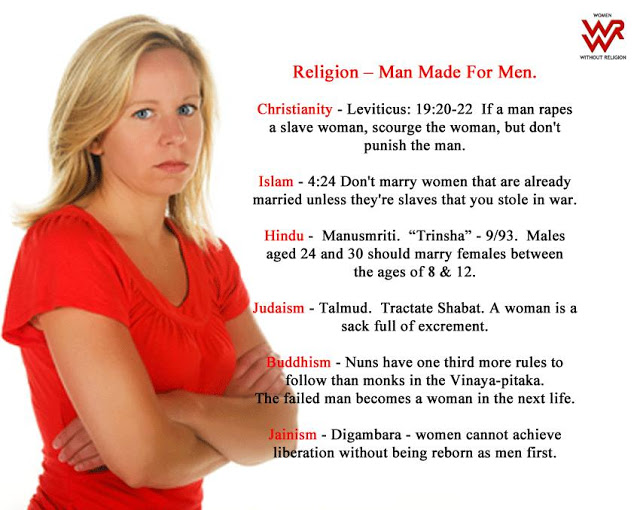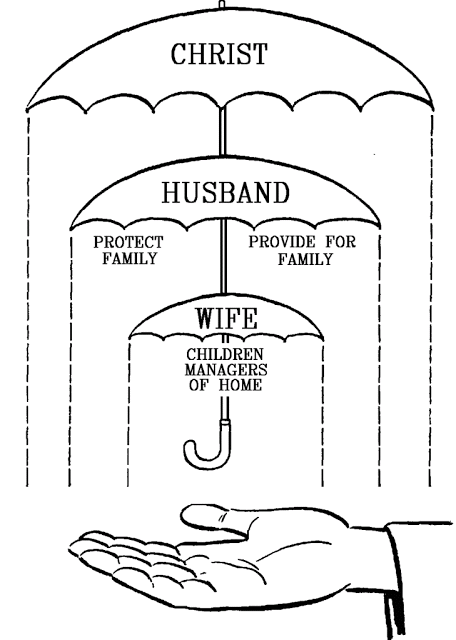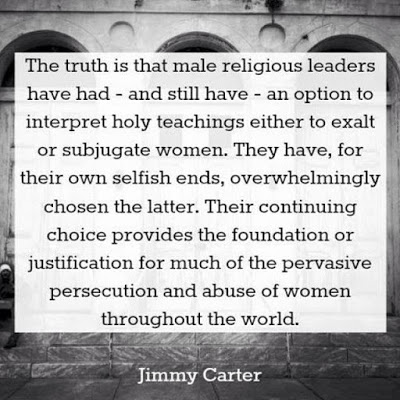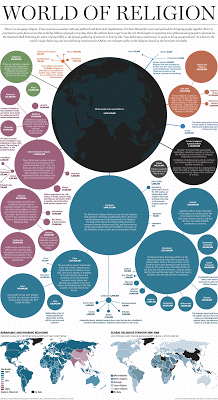“Keep the Ordinances, As I Delivered Them”
1 Corinthians 11–16
LDS manual: here
Purpose
To encourage readers to avoid theocratic misogyny
Main ideas for this lesson
God > Men > Women
As far as organisations go, religions are the most misogynistic things going. It’s not just Christianity that’s anti-woman.
At least in our day, Christians have learned enough to protest that they’re not anti-woman. “We’re not misogynistic! Jesus taught women!” And for Mormons: “We have the Relief Society, which is a women’s organisation!”
And here, Brother Jake explains how Mormonism is totally not sexist.
To get to the core of Christian sexism, we have to go to 1 Corinthians 11, where Paul lays it out. Here’s his explanation of Why Men Are Better.
1 Corinthians 11:1 Be ye followers of me, even as I also am of Christ.
11:2 Now I praise you, brethren, that ye remember me in all things, and keep the ordinances, as I delivered them to you.
11:3 But I would have you know, that the head of every man is Christ; and the head of the woman is the man; and the head of Christ is God.
There it is. In Paul’s world (and the Christian world, too), there’s a hierarchy: God, then men, and then women. Sometimes this takes the pretext of protection, as in this graphic.
See — the wife is that tiny umbrella at the bottom. You might wonder, if the big umbrella is doing its job, aren’t the tiny umbrellas a bit superfluous? Anyway.
This “protection” takes a wide range of forms. Have you ever been told that information about Heavenly Mother is purposely limited, as a way of protecting her from blasphemy? If she existed, I’m sure she could take care of herself. (If she ever got off of my face, that is. See, I can blaspheme even with limited information.)
Side note: In Saudi Arabia, women can’t drive or exist in public without a man; a friend who lives there tells me that they think they’re “protecting” women, too. I call this “putting women on a pedestal, so you can look up their dress.”
Paul continues: women should keep their heads covered. Why? Because God is apparently a man, and men are like him. Women, however, are made for the benefit of men. Augh — cover them up!
1 Corinthians 11:4 Every man praying or prophesying, having his head covered, dishonoureth his head.
11:5 But every woman that prayeth or prophesieth with her head uncovered dishonoureth her head: for that is even all one as if she were shaven.
11:6 For if the woman be not covered, let her also be shorn: but if it be a shame for a woman to be shorn or shaven, let her be covered.
11:7 For a man indeed ought not to cover his head, forasmuch as he is the image and glory of God: but the woman is the glory of the man.
11:8 For the man is not of the woman: but the woman of the man.
11:9 Neither was the man created for the woman; but the woman for the man.
11:10 For this cause ought the woman to have power on her head because of the angels.
What is the deal with covering women up? WTF, religions.
Then Paul throws in this weak justification:
1 Corinthians 11:11 Nevertheless neither is the man without the woman, neither the woman without the man, in the Lord.
11:12 For as the woman is of the man, even so is the man also by the woman; but all things of God.
This is trying to have it both ways.
Ask: How do LDS church leaders try to have it both ways on this issue?
Answer: In The Family: A Proclamation to the World, where it is claimed that men “preside”, and yet men and women are “equal”.
Paul wraps it up with a commandment to keep women silent in church. If they want to learn something, they can wait until they get home and ask their husbands.
1 Corinthians 14:34 Let your women keep silence in the churches: for it is not permitted unto them to speak; but they are commanded to be under obedience as also saith the law.
14:35 And if they will learn any thing, let them ask their husbands at home: for it is a shame for women to speak in the church.
Ask: How does this play out in modern Christianity?
Answer: They love it. Get a load of this graphic that some Christians are sharing on social media. “Shut ’em down, guys!”
Wow.
You know what I love about not being a Mormon / Christian anymore? I can call out this bullshit, without having to spend one second thinking in a state of conflict, wondering how I can integrate this into my philosophy. It is bullshit, and it has no place in this century.
Let’s give Jimmy Carter the final word.
Spiritual gifts
The concept of spiritual gifts tends to come up in Sunday School lessons from time to time, and here it is now.
1 Corinthians 12:4 Now there are diversities of gifts, but the same Spirit.
12:5 And there are differences of administrations, but the same Lord.
12:6 And there are diversities of operations, but it is the same God which worketh all in all.
12:7 But the manifestation of the Spirit is given to every man to profit withal.
12:8 For to one is given by the Spirit the word of wisdom; to another the word of knowledge by the same Spirit;
12:9 To another faith by the same Spirit; to another the gifts of healing by the same Spirit;
12:10 To another the working of miracles; to another prophecy; to another discerning of spirits; to another divers kinds of tongues; to another the interpretation of tongues:
12:11 But all these worketh that one and the selfsame Spirit, dividing to every man severally as he will.
From the LDS manual:
What are spiritual gifts? (Spiritual blessings or abilities given through the Holy Ghost.)
Some Sunday School lessons offer long lists of “spiritual gifts”, including the gift of healing, prophecy, wisdom, working miracles, and the gift of believing anything anyone tells you.
The concept of spiritual gifts — having certain spiritual “talents” that you’re especially good at — makes absolutely no sense if we’re talking about gifts like healing or miracles. If God is the one who heals people or does the miracle, then why would he make some people “better” at doing those things — and others worse? In other words, why would he hobble some people?
The more you try to explain it, the more it begins to look like the Force and Midi-chlorians.
It’s easy to see how this belief arose. In a population, people get sick — and better again — in seemingly sporadic ways. So if someone seems to be healing two or three people in a row, they get a reputation as a “healer”. Or if someone is good with languages, it’s easy to tag them as having a “spiritual gift”, when what they really have is a kind of aptitude. But it’s a silly way to describe what someone is good at.
Did Jesus appear to 500 people?
Paul spends a lot of time reiterating how much he’s taught the Corinthians, and reminding them that Jesus was resurrected. He even talks about how many people saw Jesus.
1 Corinthians 15:3 For I delivered unto you first of all that which I also received, how that Christ died for our sins according to the scriptures;
15:4 And that he was buried, and that he rose again the third day according to the scriptures:
15:5 And that he was seen of Cephas, then of the twelve:
15:6 After that, he was seen of above five hundred brethren at once; of whom the greater part remain unto this present, but some are fallen asleep.
15:7 After that, he was seen of James; then of all the apostles.
15:8 And last of all he was seen of me also, as of one born out of due time.
I don’t think any of the above is true, but whenever the topic of the historicity of Jesus, I hear a lot of Christians go on and on about Jesus appearing to 500 people.
Well, did he?
One way we can know if a historical event happened is if it’s corroborated in multiple sources.
Ask: If the Bible didn’t exist, what would we know about Jesus’ life and resurrection?
Answer: Nothing. These events are not corroborated in extra-biblical sources (despite what people claim about Josephus).
But it would have been easy for any of the 500 to write something about the experience. It would have been an amazing experience. Didn’t they bother? Why don’t any sources come up in the historical record? For all these people to have seen Jesus and then leave no record verges on the miraculous.
Christianity says that Christianity sucks if it’s not true.
Paul makes an interesting observation that I quite agree with: that if the gospel is not literally true, that believers are wasting their time.
Ask: Have you ever heard anyone say this? “Even if the church weren’t true, I’d still practice it, because it’s a good way to live.” How would you respond?
Answer: One way of countering this foolishness is to point out that it’s not a good way to live. Misogyny isn’t a good way to live. Lying to people isn’t a good way to live. Fake science isn’t good.
Even if the church’s claims were true, it would be pretty hard to justify this way of living. It offers some benefits (like a social group) that are available by other means, and it offers them at an unacceptably high cost.
But Paul’s the one who comes out and says it: It needs to be true. It’s not enough that it offers a good way of life, or it makes you feel good. If it’s not literally true, then it’s all vain.
1 Corinthians 15:14 And if Christ be not risen, then is our preaching vain, and your faith is also vain.
15:15 Yea, and we are found false witnesses of God; because we have testified of God that he raised up Christ: whom he raised not up, if so be that the dead rise not.
15:16 For if the dead rise not, then is not Christ raised:
15:17 And if Christ be not raised, your faith is vain; ye are yet in your sins.
15:18 Then they also which are fallen asleep in Christ are perished.
15:19 If in this life only we have hope in Christ, we are of all men most miserable.
I agree. The cost of Christianity is too high if it isn’t true. (I’d argue that it’s too high, even if it is true. Worshipping the homophobic, sexist, genocidal monster we call the Christian god is an awful thing to do, and if he were real, I would oppose him because by his own scriptures he’s vile and unworthy of respect. The last thing he’d see of me as he booted my heathen ass down to hell would be my middle finger.)
Paul doesn’t offer the squishy road. I respect that. He knows that if is it isn’t true, it’s actually a terrible way of living.
You know who else doesn’t offer a middle road: LDS church leaders. They know that if it isn’t true, it’s false.
“Each of us has to face the matter—either the Church is true, or it is a fraud. There is no middle ground. It is the Church and kingdom of God, or it is nothing.”
Gordon Hinckley, Loyalty
Additional lesson ideas
God is the author of confusion
Paul says that God is not the author of confusion.
1 Corinthians 14:33 For God is not the author of confusion, but of peace, as in all churches of the saints.
That’s just an odd claim. Just look at the world’s religions and notice how fragmented they are. Here’s an infographic to help.
Now zoom in on Christianity, and all the many varieties to choose from.
Now just Protestantism.
Now just the millennial varieties of Protestantism that grew out of the USA in the 1800s.
Now all the various splinter groups of Mormonism.
And many of these groups inveigh against the others. A joke by the legendary Emo Philips tells it best.
It would be easy for God, who apparently knows how to do anything, to sort out this confusion and unambiguously declare which of all the varieties are his (if any, or all). Instead, we get a rather milquetoasty statement from Paul about the body of Christ, which may or may not apply here.
Religion leads unavoidably to this kind of conflict and confusion because religions get their information from unreliable sources. They use authority, revelation, and tradition — and none of these are based in reality. They essentially let reality go because they trade in fantasy instead. And because they deal in fantasy, reality can never be the court of last appeal for them. So nothing in the real world could ever disconfirm their belief that they’re doing it right. By contrast, scientific ideas get disconfirmed all the time. All scientists are trying to match their ideas to reality as hard as they can — or else they’ll be punished in the court of reality. The practical result: Science converges; religion diverges. Science is the author of consensus; God is the author of confusion.
Three degrees of heaven
This reading is where Mormons get the ‘three degrees of glory’ idea.
1 Corinthians 15:40 There are also celestial bodies, and bodies terrestrial: but the glory of the celestial is one, and the glory of the terrestrial is another.
15:41 There is one glory of the sun, and another glory of the moon, and another glory of the stars: for one star differeth from another star in glory.
That’s a pretty big doctrine for Joseph Smith to hang onto two verses. But it seems that it might not have been Smith. Smith seems to have pulled a lot of theology from one Emanuel Swedenborg, a creative theologian in his own right. In 1784, Swedenborg wrote essentially the same doctrine:
29. There are three heavens, entirely distinct from each other, an inmost or third, a middle or second, and an outmost or first. These have a like order and relation to each other as the highest part of man, or his head, the middle part, or body, and the lowest, or feet; or as the upper, the middle, and the lower stories of a house. In the same order is the Divine that goes forth and descends from the Lord; consequently heaven, from the necessity of order, is threefold.
Check out the rest of this great Reddit thread by Mithryn about many more potential plagiarisms from Joseph Smith.
Long hair is a shame
Somewhat counter-intuitively, Paul claims that even nature testifies of the shame of male hairiness.
1 Corinthians 11:14 Doth not even nature itself teach you, that, if a man have long hair, it is a shame unto him?
11:15 But if a woman have long hair, it is a glory to her: for her hair is given her for a covering.
No, actually Paul, nature teaches me no such thing. It’s hair. It grows. If you don’t cut it using artificial scissors, it keeps growing.
Paul was weird.
So is the LDS Church, which prohibits long hair for its male students, and has recently banned man buns on its Idaho campus.
Put away childish things
Let’s round things off with some good advice.
1 Corinthians 13:11 When I was a child, I spake as a child, I understood as a child, I thought as a child: but when I became a man, I put away childish things.
Religion may have had some utility in the infancy of our species, when we didn’t know where the sun went at night. It may have served to explain things (poorly) or to give comfort in the face of death (falsely). It certainly served those functions for me when I was younger. But then it was time to grow up. We figure out the Easter Bunny and Santa Claus, but then a lot of us never quite make it all the way to figuring out God.
I think that theistic belief prevents growing up. Two of the main jobs of adulthood are
- to learn to think critically, and
- to come to grips with one’s own mortality.
Christianity precludes both of those jobs by
- encouraging wishful thinking and extolling fallacious reasoning, and
- telling you that you’ll survive your own death and live forever.
It short-circuits both of those jobs, and renders us incapable of them. Time to put them away. It’s not easy, but it’s part of being a grown-up.
Handel
It’s time to finish, but before we go, let’s have a hymn. It’s a ripping piece from Handel’s Messiah oratorio, with the text based on this reading from Paul.
1 Corinthians 15:51 Behold, I shew you a mystery; We shall not all sleep, but we shall all be changed,
15:52 In a moment, in the twinkling of an eye, at the last trump: for the trumpet shall sound, and the dead shall be raised incorruptible, and we shall be changed.
See you next time.








Recent Comments